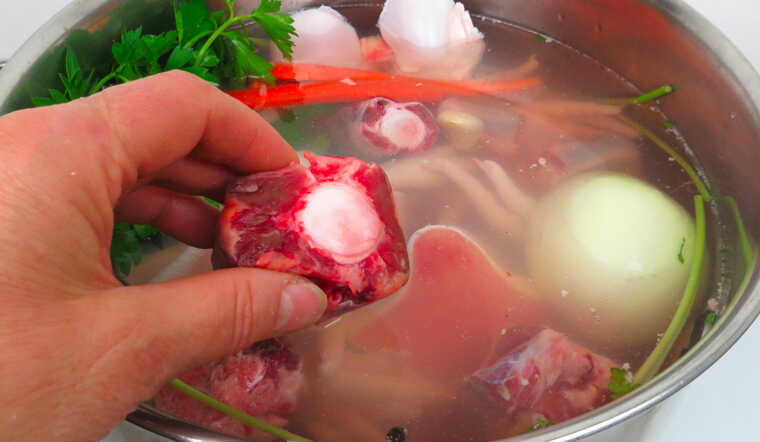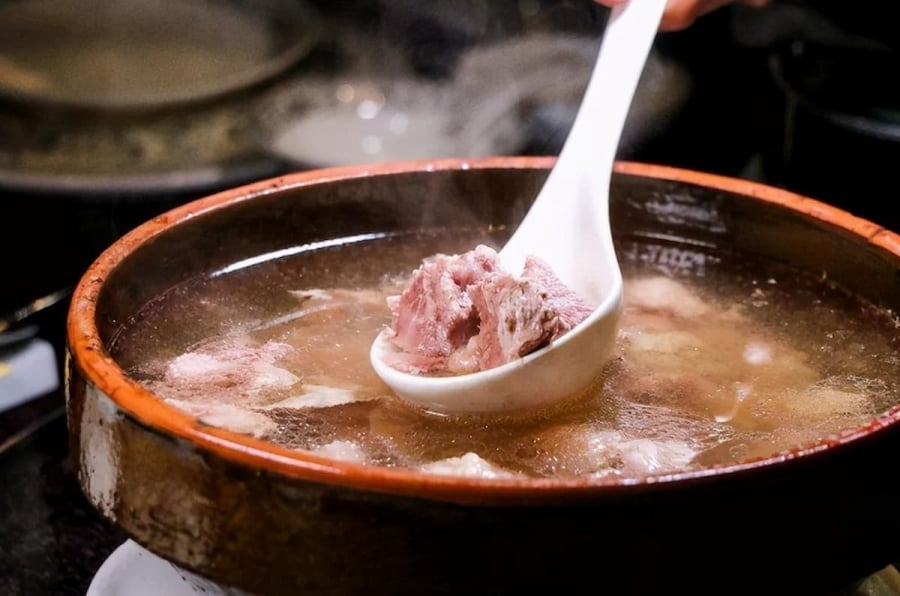Bone soup is a nutritious dish that is familiar to people. Bone soup is rich in calcium, which is good for the bones and joints of children and the elderly. However, when boiling bones for bone soup, if you want to prevent it from becoming cloudy and smelly, try applying the following tips to make the soup clear, fragrant, and delicious.
According to nutrition experts, the ingredients in the soup pot will produce bubbles when heated, which are actually protein dissolved in water. When boiling, the proteins will coagulate and rise to the surface. Many people have the habit of skimming off the white foam that rises when cooking bones and boiling meat.
How to make clear and flavorful bone soup
Soaking the bones before cooking
If you only rinse the bones with water before cooking, it can still make the soup cloudy. To fix this, soak the bones in rice water for about 1 hour before cooking, then rinse them thoroughly and start boiling. Soaking the bones in rice water for about 1 hour is the best way to clean them.
Soaking the bones helps to remove excess blood, reducing the unpleasant smell when cooking. The bone broth we make will be clearer, with a delicious flavor, and high nutritional value, without any unpleasant odor.

Boil scallions and ginger first, then add the bones
When cooking bone soup, many people often add scallions and ginger to make the bones and broth more fragrant. However, it is important to pay attention to the timing for these two ingredients. Adding them at the same time as the bones is not correct.
The correct method is to prepare a pot of water, add finely chopped scallions and ginger, bring it to a boil, then add the pre-blanched pork bones to simmer until the bones are tender.
Add salt to the soup at the end
Many people have the habit of adding salt to the soup as soon as the bones are added, thinking that adding salt early will make the broth more flavorful, not bland. Or some people wait until the bone broth turns milky white and then add salt.

The reason is that if you add salt too early, it will cause the loss of nutrients. However, both of these timings are incorrect because they are still too early. Salt should be added when you are almost finished simmering the soup, preparing to turn off the heat. At this time, the bone broth will retain its original flavor. The nutritional value of the bone soup will be high.
When you simmer the bones correctly, it helps to make the dish more fragrant and retain its nutritional benefits. Adding salt too early will cause the loss of these nutrients. Therefore, adding salt at the end allows it to enhance the flavor to a certain degree while preserving the nutrients of the bone soup.






































